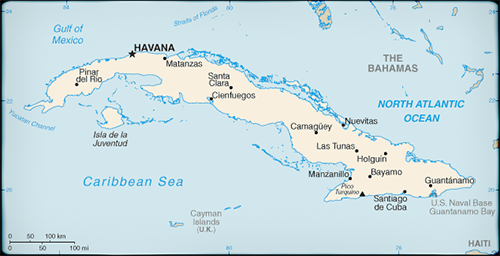Just as Central America breathed a sigh of relief, more Cubans migrants are gathering at Panama's border with Costa Rica.
Last week Costa Rica, Panama, and Mexico announced that the "successful" transfer of over 6,000 Cuban migrants to Mexico had concluded. The Cuban migrants then continue north to the United States to take advantage of the Cuban Adjustment Act of 1966 and the "wet foot, dry foot" policy which stems from it.

However, on Thursday, Panama's President Juan Carlos Varela said that hundreds of Cubans continue to arrive at his country's border with Costa Rica. Costa Rica's President Solis quickly responded that the humanitarian operation it had carried out over the past four months was over, and Costa Rica would not be taking any more islanders. Solis added that if Cubans enter the country illegally they will be deported.
The Costa Rican president explicitly blamed the U.S. Cuban Adjustment Act for the ongoing migrant crisis. He said that, "Cuban immigration will continue because it's a structural phenomenon, until the government of the United States puts an end to the laws that attract this migration." President Solis continued, "Until these laws change we will continue to see this situation that, from a humanitarian point of view, creates so much pain and risk for these thousands of Cuban migrants."
The Costa Rican president asked the police to increase its presence at the southern border, with Panama. Both Costa Rica and Nicaragua's borders remain closed to Cubans without visas. Additionally, Colombia has accelerated processes so Cubans can cross into Panama more quickly.
Moreover, President Solis called for the International Organization for Migration to hold a regional meeting of relevant government officials in order to address the new wave of Cuban migrants.
The new wave of migrants should not come as a surprise; the special incentives for Cubans to migrate to the United States illegally are significant. As President Solis noted, Cuban immigration will continue as long as the United States refuses to end the practice of giving automatic legal status and full welfare eligibility to any Cuban who reaches our border. However, he failed to acknowledge the incentive created by his own government and other Central American governments as they provided shelter, food, and alternative routes to the United States.
